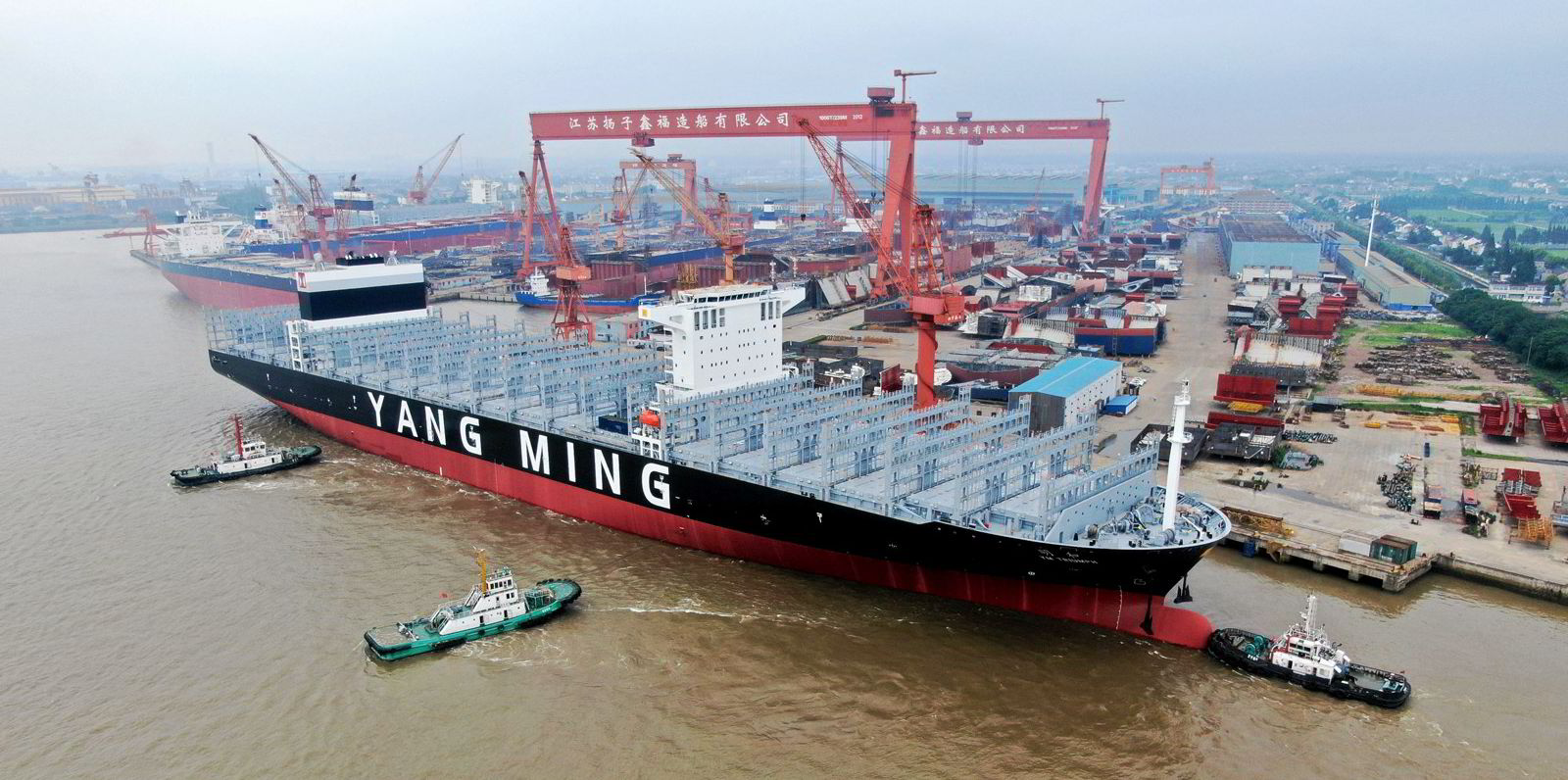Singapore’s Pacific International Lines (PIL) has clinched an order for new LNG-fuelled and ammonia-ready container ships in China.
The company said a deal has been signed with Yangzijiang Shipbuilding for four 8,000-teu vessels for delivery from 2025.
The ships will be fitted with a tank that will handle ammonia as a fuel when the technology is ready.
The deal was first reported by TradeWinds at the end of June at an estimated cost of $480m.
PIL chief executive Lars Kastrup said there are two key reasons for the order.
“Firstly, this is part of our ongoing efforts to optimise and renew our assets for greater operational efficiency. The new vessels will complement our existing fleet and support us in the enhancement of our connectivity to better meet the needs of our customers worldwide,” he added.
Kastrup said the second reason is that the owner has identified LNG as a commercially viable transition fuel solution, with the ammonia option giving it a pathway to zero emissions by 2050.
TradeWinds had earlier learned that a letter of intent had been signed, with an official contract imminent.
Sources said PIL had selected Yangzijiang over Shanghai Waigaoqiao Shipbuilding and Samsung Heavy Industries as its preferred yard because it offered GTT’s Mark III membrane system for the LNG tanks.
Late to the party?
PIL is late to the party in ordering 8,000-teu vessels. Clarksons’ Shipping Intelligence Network shows more than 120 newbuildings of between 7,000 teu and 8,000 teu are booked at shipyards in China and South Korea.
The compact neo-panamax container ship has been dubbed the future workhorse of the sector as it is flexible enough to trade from the Far East Asia to Middle East, as well as on north-south trades.
The vessels are expected to replace existing container ships of between 4,000 teu and 5,000 teu.
In March, PIL commissioned Chinese state-owned Jiangnan Shipyard to build four LNG dual-fuel 14,000-teu vessels at a reported price of more than $160m each.
These boxships will also be prepared for ammonia propulsion. The deal ended PIL’s seven-year order drought.




